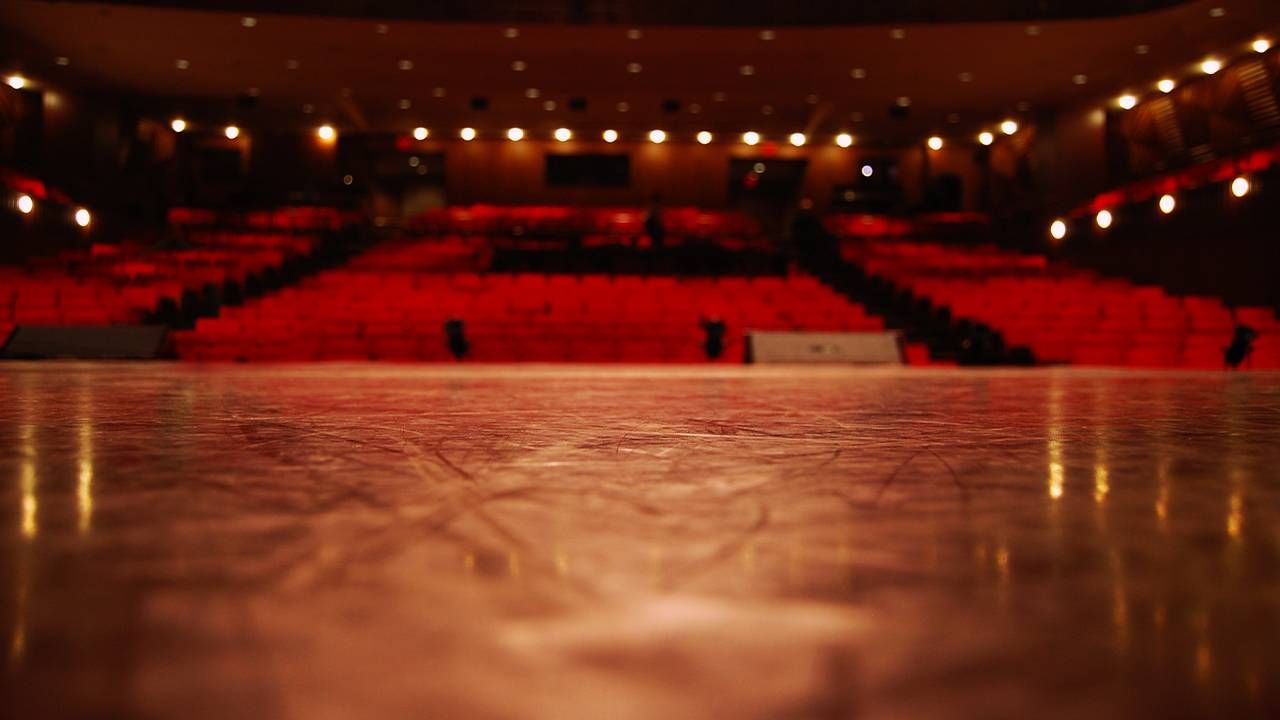My First Play: Written in Life's Second Half
A tale of the backstory and backstage support I've received
I was 68 in 2016 when my memoir, "Finding Mr. Rightstein," was published. At book events, as I read sections about my bad — and very bad — dates and family struggles, I pictured these experiences on a brightly lit stage.

In January 2021, that fantasy became a glorious reality for me when the Jewish Repertory Theatre, of Western New York (JRT), held a Zoom reading open to the public.
When the playwriting bug bit hard five years ago, it was exciting, but also challenging.
Here's how my play came to be, and what I'm hoping will happen next:
The Playwriting Begins
Beginning in 2017, I spent 18 months writing the play of "Finding Mr. Rightstein," combining book material with fictionalized scenes. I wrote it, as I write essays and books, with an urgency and for myself, impelled from within to do it.
Snippets of dialogue and thoughts woke me in the middle of the night. I jotted them down or went to my computer in my New York City apartment.
I love writing dialogue and have since I was a teacher in a Lower East Side public school in 1973 and published my first essay based on that experience, "Lunchroom." That essay was practically all dialogue between two teachers, Rhoda and Edna; a playlet.
Dialogue figures heavily in my other essays about being a divorced mother, a daughter, a friend, a date and a wife.
I also love theater, falling in love with it as a child on my family's first New York City trip, sitting in the second row of the Broadway production of "The Diary of Anne Frank."
Theater was a major reason I transferred to NYU as a college junior and stayed.
Giddy Feelings and Self-Doubt
When the playwriting bug bit hard five years ago, it was exciting, but also challenging. One day, I was giddy, feeling my play was funny and insightful. The next day, plagued with self-doubt, I wanted to throw it out, wondering: Who was I to think I could do this?
So, I hired dramaturg Molly Marinik, who advised me on which scenes and conversations to tighten or cut (because they were long, static or didn't move the action forward) and which scenes, conversations and characters could be further developed to deepen the story.
In discussing play structure, she told me to eliminate explanations and exposition, suggested I reread the plays of Tennessee Williams and Eugene O'Neill and read newer ones including "From Up Here" by Liz Flahive.
My dramaturg reminded me each time she sent me back to the drawing board that playwriting is a long, arduous process.
I squirmed through three readings of the play in my living room, feeling vulnerable and exposed. My gut, cast and small audience told me what work was needed. I grappled deciding which suggestions to take.
A Staged Reading Canceled by the Pandemic
Because much of my play is set in my hometown of Buffalo, N.Y., I sent my best draft to Jordana Halpern, the artistic director of the Jewish Repertory Theatre, of Western New York (JRT) there. I didn't know her, but heard she was great.
She is.
Jordana liked the play (except for the opening monologue) and suggested I write an inciting scene instead that would grab the audience and ignite the action. I did.
Jordana scheduled a June 2020 in-person staged reading. But it was cancelled due to the pandemic, of course. It was then rescheduled for the January 2021 Zoom reading.
I got nervous. "Do you really like my play?" I often asked Jordana. "I really do," she kept answering.
In December, the JRT marketing coordinator told me about her publicity efforts to attract an audience. Adam Yellen, the director, emailed to say he got the actors he wanted and would have a rehearsal a few nights before the Zoom event. I could attend the rehearsal if I wanted.
Comforted by all the support, I felt Barbra Streisand's glee playing the actress and comedian Fanny Brice in "Funny Girl" when she said [famed Broadway impresario Flo] "Ziegfeld's looking for me." I also felt anxious.
The Audience Zooms In
At the Zoom reading, many of the 165 people who registered brought along family and friends. During the Q&A after and in subsequent emails, I received numerous revision suggestions which included: give Dad more lines and scenes; eliminate some flashbacks and Wrongstein men; change the title (because the play is more substantial than a man hunt) and revise the ending.
My mother said good things take a long time to develop. She was right.
Since then, I've written a new ending and know I have a lot of other work to do.
My passion still trumps my fears. So does all the support I've had.
An actor friend, wanting a part in future readings and productions, offered to read and weigh in on subsequent drafts. Adam and Jordana told me they want to continue the journey.
At this leg, I am grateful for these champions. But the play's revisions are up to me. Some days, it takes forever to get going; other days, I dive in. Deciding which suggestions to take still challenges me.
Moving Forward: The Play's the Thing
My mother said good things take a long time to develop. She was right. Perhaps my children and grandchildren will pick me up at an assisted living facility for the eventual theatrical opening one day.
I believe that with revising and persisting, my play will have readings and productions in regional and repertory theaters all over when the pandemic restrictions fade, and venues can reopen. I dream of an Off-Broadway production, too.
Joe Biden was 78 when he became President. Joel Grey directed "Fiddler on the Roof" in Yiddish in his 80s, not knowing Yiddish. Hard work does not scare me. Not having work I love does.
Read More

